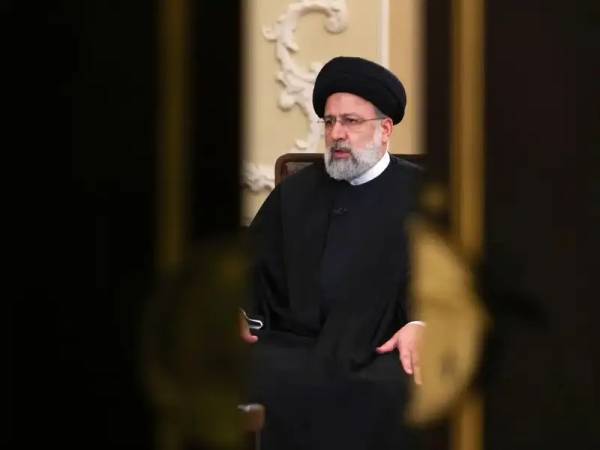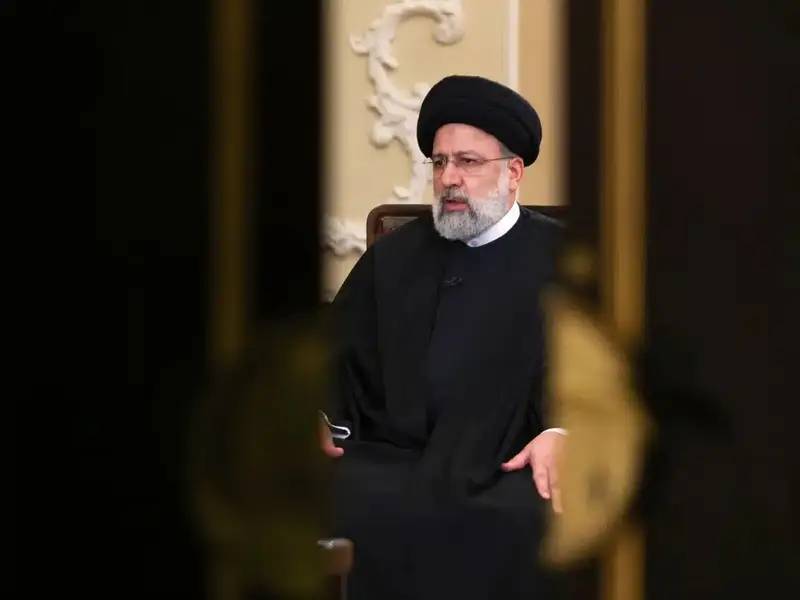The death of Iranian President Ebrahim Raisi has triggered a mix of official condolences contrasted with backlash from critics around the globe who see the condolences as approval of Raisi’s legacy as the 'Butcher of Tehran'.
Many European leaders and officials have voiced strong dissent against the European Council’s condolences. Geert Wilders, a well-known far-right leader from the Netherlands, vehemently rejected EU sentiments of sorrow, declaring them unrepresentative of their views and launching the hashtag "not in my name" on the social network X.
Wilders further criticized the current Iranian regime, expressing hope for a secular future for Iran free from what he describes as an "oppressive and barbaric Islamic mullah regime.”
President of the European Council, Charles Michel had released a statement saying "the EU expresses its sincere condolences for the death of President Raisi and Foreign Minister Abdollahian, as well as other members of their delegation and crew in a helicopter accident. Our thoughts go to the families.”
Wilders' statements rejecting the condolences have resonated across social media, garnering support from other European politicians like Charlie Weimers, Benjamin Haddad, David Lega, Nathalie Goulet, and Theo Francken, all of whom have publicly criticized the act of consoling Raisi’s death.
Critics argue that extending condolences to such a regime implicitly legitimizes its actions, which include suppression of dissent, support for terrorism, and ongoing human rights violations. At the age of 25 in 1984, Raisi became the deputy head of the Revolutionary Court, and by 1988, as deputy prosecutor of Tehran, he was part of the Death Committee, which oversaw the mass execution of thousands between August and September of that year.
French Parliament representative Benjamin Haddad openly questioned the appropriateness of mourning a regime that "hangs its freedom-loving young people, attacks its neighbors, produces drones that kill Ukrainian civilians, and supports terrorism."
Hannah Neumann, a member of the European Parliament and a critic of the Islamic Republic, told the people of Iran that Michel issued the condolence message in his personal capacity, not on behalf of Europe.
Amidst the international reactions, figures like Sergio Mattarella, the President of Italy, and Xi Jinping, President of China, also shared their condolences, with Xi calling the loss "a great tragedy for the people of Iran" and claiming "the people of China have lost a good friend." The sentiment faced criticism on Chinese social networks, with some users calling the crash "the best gift for Iranian women," reflecting the deep divisions in public opinion regarding Raisi’s rule.
The response from media outlets has been equally sharp, with the Australian Financial Review branding Raisi as an “executioner,” referring to his alleged role in mass executions and crackdowns during his time in power, well over 500 last year alone in a record wave of executions.
Iran's neighbors have been more sympathetic to the news. Pakistan declared a national day of mourning, a move that drew varied responses domestically and internationally. Similarly, leaders from Syria and Lebanon announced official mourning periods, underscoring the divisive nature of Raisi's influence.
Prominent leaders like Turkey’s Recep Tayyip Erdogan and Azerbaijan’s Ilham Aliyev have also paid their respects.

